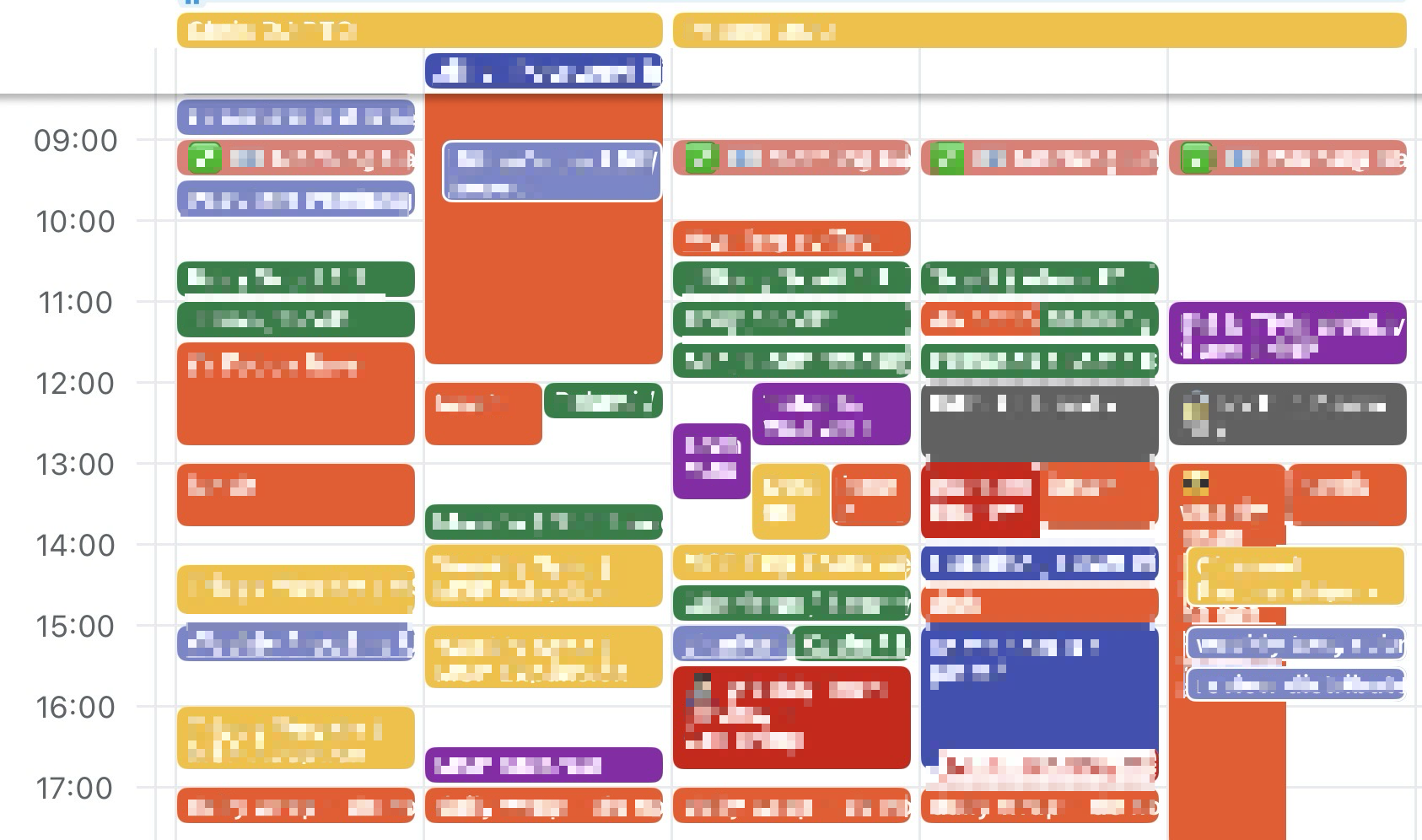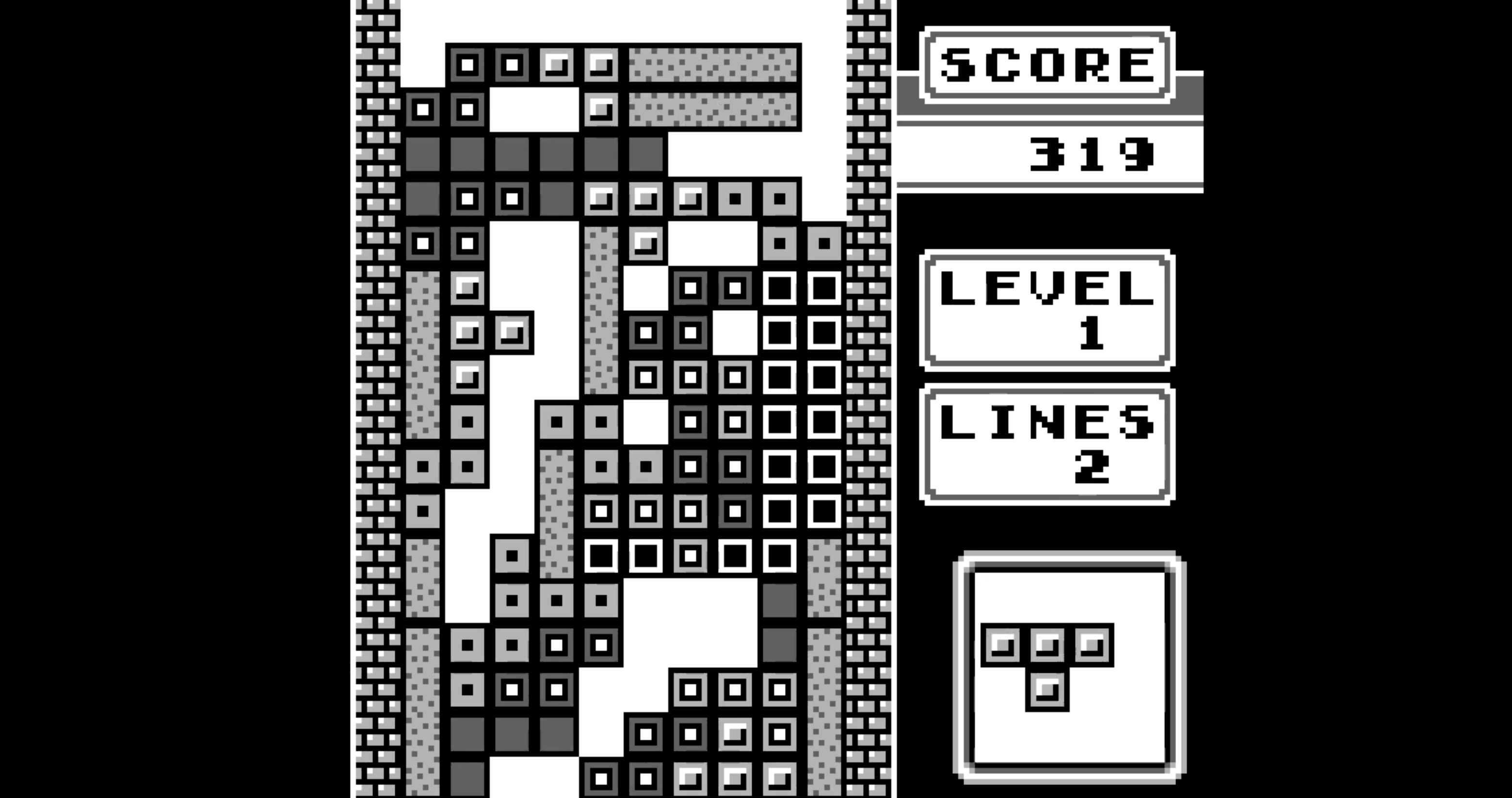“If Tetris has taught me anything, it’s that errors pile up & accomplishments disappear.”
Most weeks my calendar looks like a game of Tetris. Colored blocks dropping in faster than I can clear them, stacking higher and higher until I’m scrambling just to keep up. One more meeting, one more call, and suddenly the screen’s full. Game over.
Earlier in my career I wore that like a badge of honor. “Look how busy I am! Look how important I must be!” But here’s the truth: Calendar Tetris isn’t leadership. It’s just chaos dressed up as status.
Busy doesn’t mean effective. It usually means you’ve stopped being intentional with your time. And when your calendar is filling up row by row every week you’re not proving your worth, you’re just proving that you’ve lost control of it.

⸻
The Status Symbol of Busy
Somewhere along the way, “busy” became shorthand for “important.” If your calendar isn’t wall-to-wall, people start wondering what you’re even doing. So we keep dropping blocks, meeting after meeting, until the board is jammed.
But being in the room isn’t the same as having impact. Half the time you’re just nodding along while someone else talks, or worse, you’re only paying attention with 15% of your brain while you multitask working on something else (which is always the moment someone’s going to call on you for something). This is when you need to realize that your FOMO is probably killing you.
And the irony? The higher the stack gets, the less room there is to maneuver. The busier you are, the less your team can actually get done. If you’re the bottleneck in every decision then you’re not showing value. You’re just slowing everyone down.
⸻
The Reality Check
Here’s the ugly truth: busy doesn’t mean productive. A week packed with meetings might look impressive, but most of the real work gets shoved into the cracks: late nights, early mornings, or (unfortunately and most commonly) not at all. The more you overload yourself, the more you drift into reactive mode. You’re bouncing from block to block, praying for a line clear, and by Friday you realize you didn’t actually move anything forward. You just survived.
Meanwhile, the things that actually matter: coaching your team, thinking ahead, and making good decisions get shoved off the board. Nobody remembers how many hours you sat in meetings. They remember whether you cleared the way for them to do great work.
⸻
The Cost of the Cult
Playing Calendar Tetris comes with a price tag, and it’s steep.
First, you lose the space to think. Strategy doesn’t happen in fifteen-minute gaps between Zoom calls. It needs air. Without it, you make short-term calls that feel urgent but don’t actually solve the real problems.
Second, your team pays the bill. If you’re always stacking blocks, you’re not available when they need you. They either wait for you to come up for air or they guess and hope for the best. Neither option sets them up to succeed.
And finally, there’s burnout—yours and theirs. Hustle culture loves to dress exhaustion up as dedication, but all it really does is drain people until they stop caring. “Always busy” isn’t leadership. It’s a slow-motion collapse.
I’ll be honest: I hit this point myself recently. I’ve got a big team, and I value 1:1s with my ICs more than just about anything but something had to give. That calendar screenshot at the top of the page? That’s been my reality every week for far too long. Days of back-to-back-to-back meetings and my calendar being a solid wall of color meant that any focus or planning time I had to myself was happening in the evenings after dinner and that’s not healthy or sustainable. For now, I’ve moved my 1:1s to biweekly. I don’t love that. It’s not the manager I want to be long term. But if I kept stacking blocks the way I was, the screen was going to fill up.

Escaping the Game
The way out starts with redefining what “important” looks like. Impact isn’t measured in how many blocks you stacked. It’s measured in whether the lines clear and your team has space to play.
Protect your focus time like it’s a meeting with your CEO. Make it visible. Block it off. And when someone wants to add another call to your week, remember my favorite rule: no agenda, no attenda. If people can’t explain why you’re needed, you’re not needed.
Say no more often. Skip the meeting. Delegate. Better yet, build a culture where your team feels empowered to do the same. Nothing sends a stronger signal than a manager who refuses to play Calendar Tetris for the sake of appearances.
Here’s the thing about Tetris: the blocks never stop coming. You can’t win, you can only hold out until you lose.